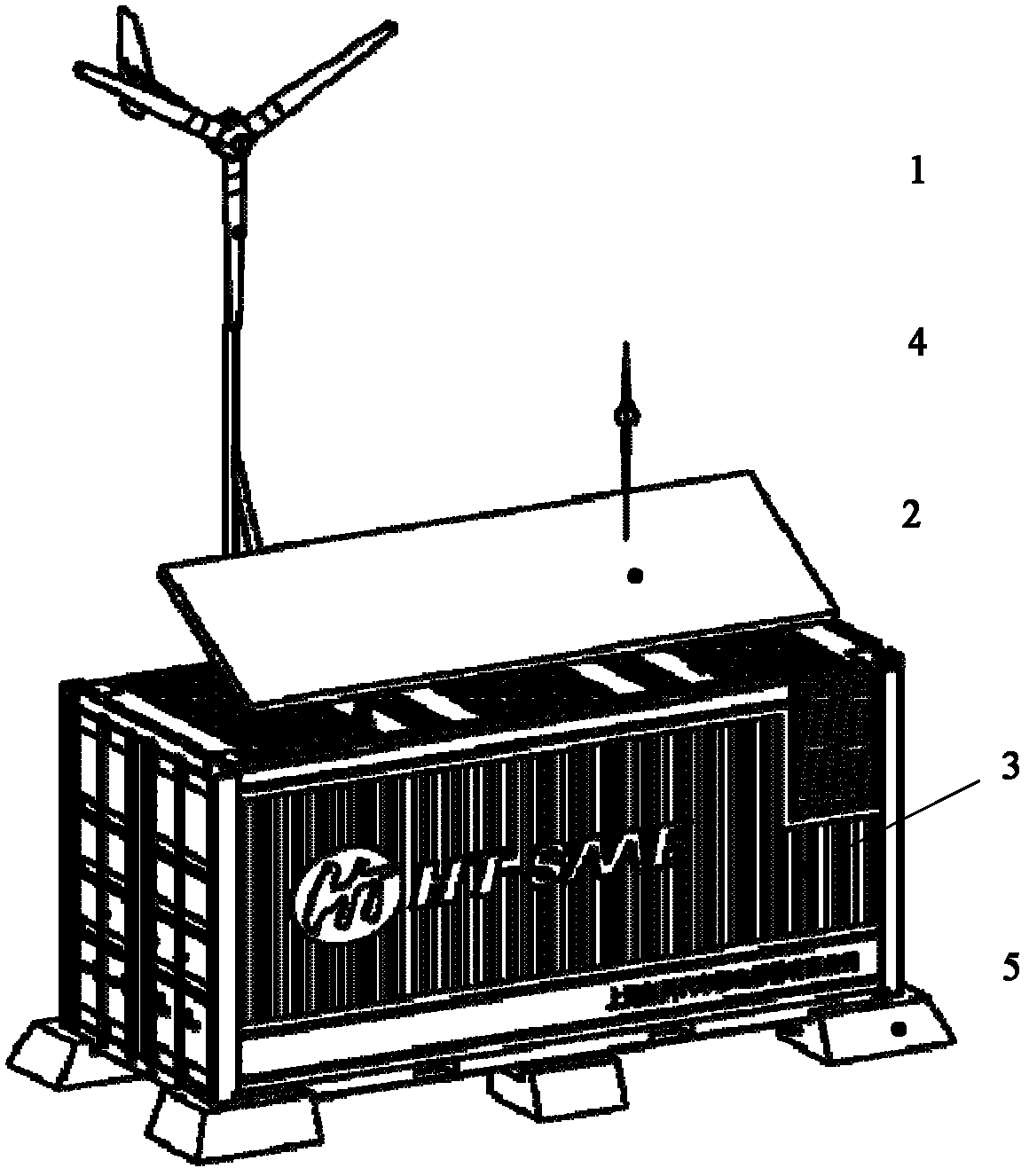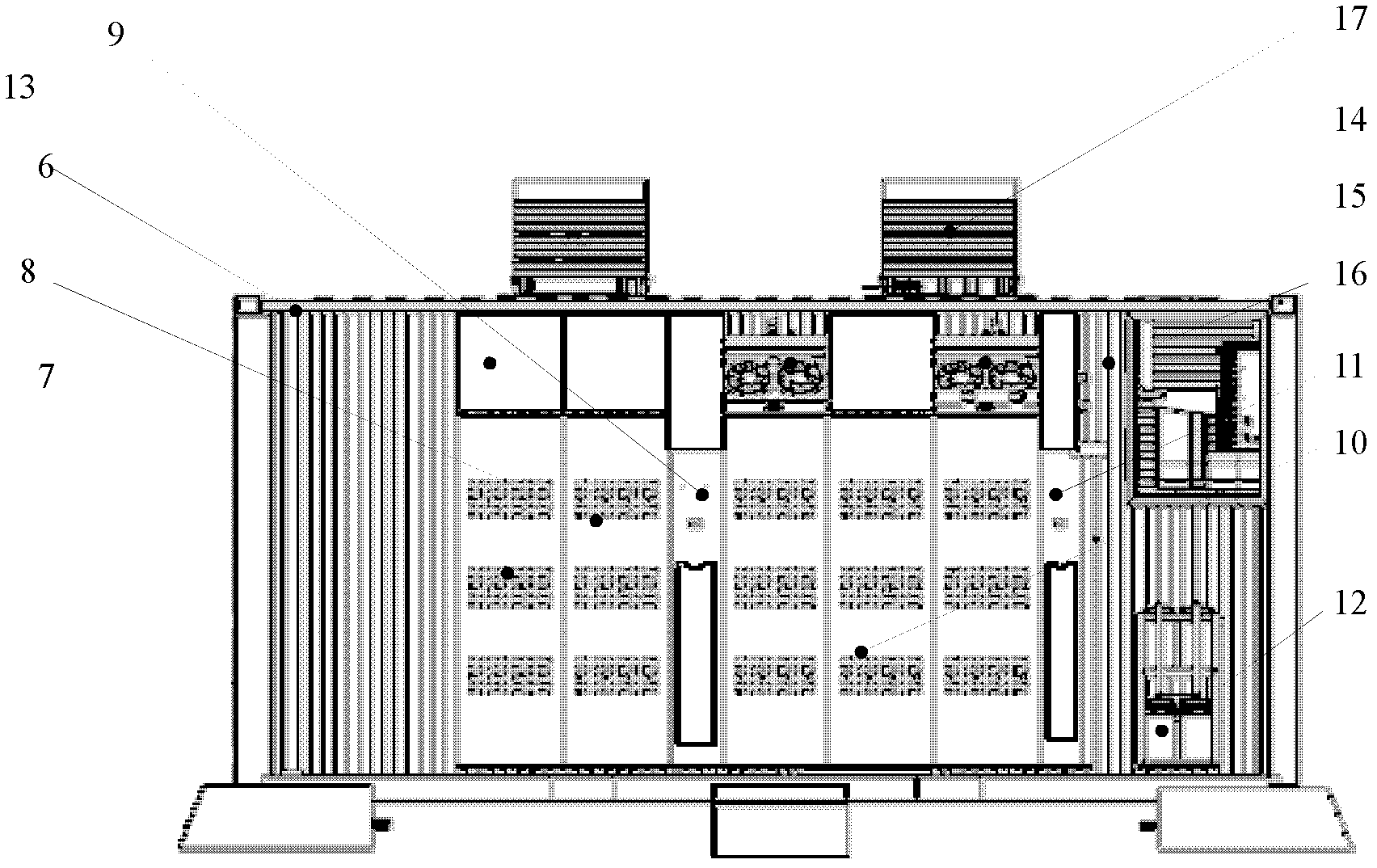Wind and light complementation integration base station
A wind-solar hybrid and base station technology, applied in the field of base stations, can solve problems such as unreasonable indoor temperature distribution, low base station system integration, and unreasonable base station layout, etc., and achieve the effect of compact structure, less requirements for site and construction conditions, and compact design
- Summary
- Abstract
- Description
- Claims
- Application Information
AI Technical Summary
Problems solved by technology
Method used
Image
Examples
Embodiment
[0032] A wind-solar complementary integrated base station, its structure is as follows Figure 1-2 As shown, the integrated base station includes a wind power generation system 1, a solar power generation system 2, a container base station box body 3, a lightning rod 4, a base anchor 5 and a heat-insulating interior decoration 6, and the container base station box body 3 is placed on the base anchor 5, there are six base anchors 5, which are respectively arranged on the bottom four feet of the container base station box body 3 and the middle part of the long side. The solar power generation system 2 and the lightning rod 4 are installed above the container base station box body 3, wherein the solar power generation system 2 includes a solar panel, and the solar panel is arranged on the top of the container base station box body 3, and the wind power generation system 1 is installed on the container base station The back of the box body 3 is connected with the box body 3 of the...
PUM
 Login to View More
Login to View More Abstract
Description
Claims
Application Information
 Login to View More
Login to View More - Generate Ideas
- Intellectual Property
- Life Sciences
- Materials
- Tech Scout
- Unparalleled Data Quality
- Higher Quality Content
- 60% Fewer Hallucinations
Browse by: Latest US Patents, China's latest patents, Technical Efficacy Thesaurus, Application Domain, Technology Topic, Popular Technical Reports.
© 2025 PatSnap. All rights reserved.Legal|Privacy policy|Modern Slavery Act Transparency Statement|Sitemap|About US| Contact US: help@patsnap.com


